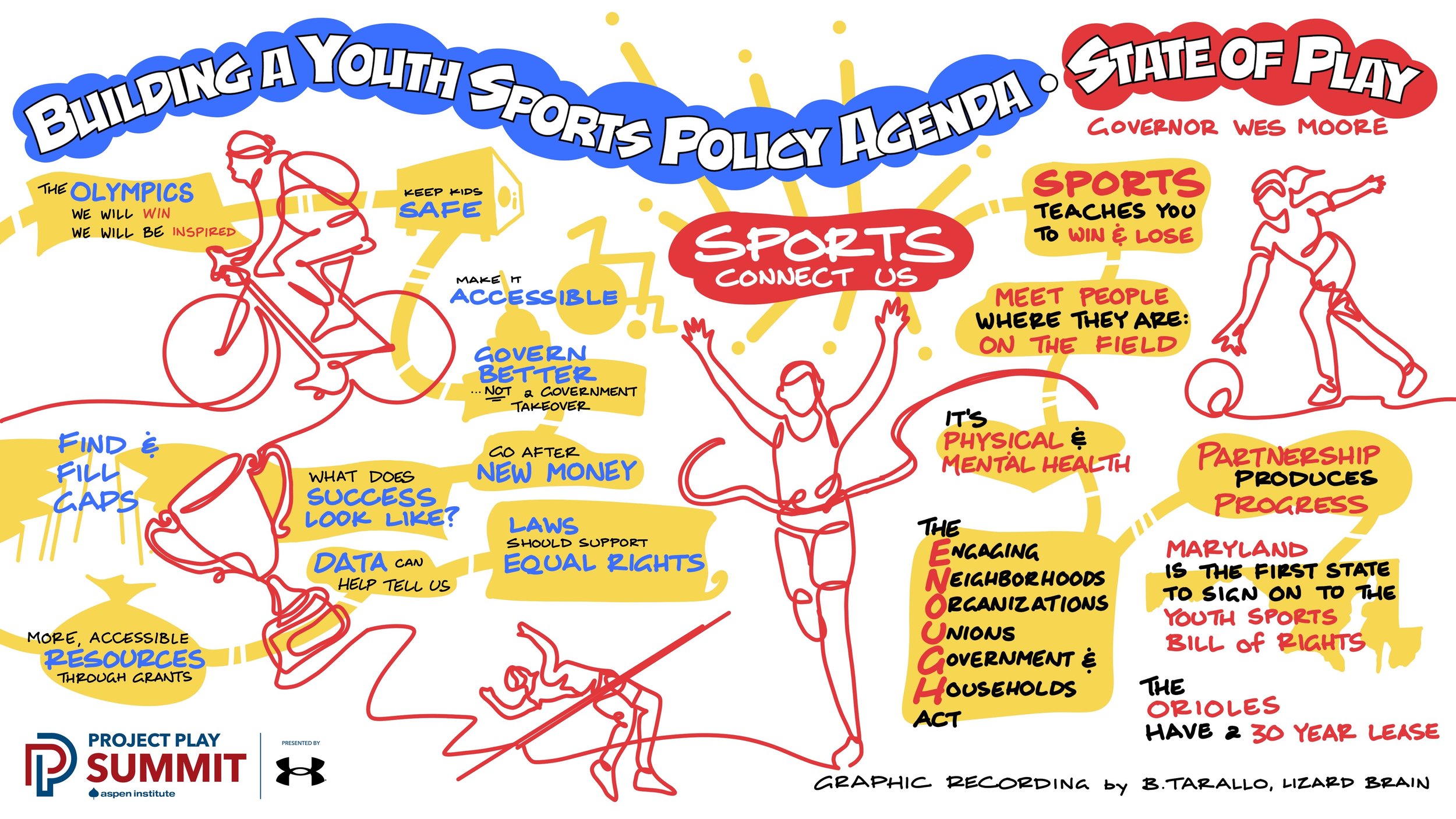Maryland governor Wes Moore (left) and FOX Sports broadcaster Greg Olsen at Project Play Summit 2024, May 15 in Baltimore.
Photo: Howard Korn for the Aspen Institute
- Baltimore as Beacon with Kevin Plank
- Health Equity in Youth Sports, featuring Mike Locksley, Marci Goolsby & Mayrena Hernandez
- The Key to 63, featuring Christina Hixson, Kim Hegardt & Kevin Martinez
- Catch Her If You Can, featuring Diana Flores
- Service Learning Through Sports, featuring Josie Portell and Rishan Patel
- Building a Youth Sports Policy Agenda
- State of Play Session, featuring Maryland Gov. Wes Moore
The Project Play Summit closed with an inspiring perspective on how one state is leading the charge of organizing and supporting the growth of youth sports.
Maryland Gov. Wes Moore discussed the value of sports in his life and for children, along with the role of government to help provide access. Joined by moderator Greg Olsen, Moore said his passion to use his platform to benefit youth sports came from being impacted as a child through playing sports.
“Some of the earliest memories I have was on a basketball court in the Bronx,” Moore said. “It was a place of escape … a place where you learned all of the beautiful things you could learn from team sports: how to win properly, how to lose properly, and the importance of being able to trust the people to your left and right.”
Moore announced that he was the inaugural governor to sign the Children’s Bill of Rights in Sports. Developed by the Aspen Institute and a group of human rights and sports policy experts, the Children’s Bill of Rights in Sports creates a shared cultural understanding about the value of sports and the minimum conditions for safe, quality youth experiences.
“When I heard this was happening and all these cities were doing, I was like, ‘How many states are doing it?’ None yet,” Moore said. “One of the great things about being governor is I can just do that. Guess what? Maryland’s doing that. I love being governor because now Maryland is going to be the first state to sign onto the Bill of Rights. I’m proud to do it and proud to be the first state to do it.”
Moore suggested that access to sports could play a role within new state legislation passed attempting to address childhood poverty. Maryland’s ENOUGH Act will provide resources to marginalized communities through partnerships with community organizations, nonprofits and anchor institutions to improve the qualify of life for Marylanders experiencing multi-generational poverty. ENOUGH stands for Engaging, Neighborhoods, Organizations, Unions, Governments and Households.
“It’s actually a governance philosophy,” Moore said. “And the whole point of it is how are we engaging every single aspect of our society … to be able to focus on the issue of concentrated child poverty? And what could it look like if we flooded (neglected areas) with resources?”
Student journalists from the University of Maryland’s Shirley Povich Center for Sports Journalism covered the Project Play Summit on behalf of the Aspen Institute. More of their stories can be found here. For Project Play’s recap of the Summit, click here. For the full Summit agenda, including replays of every session, click here. The full conversation between Moore and Olsen is available here.


